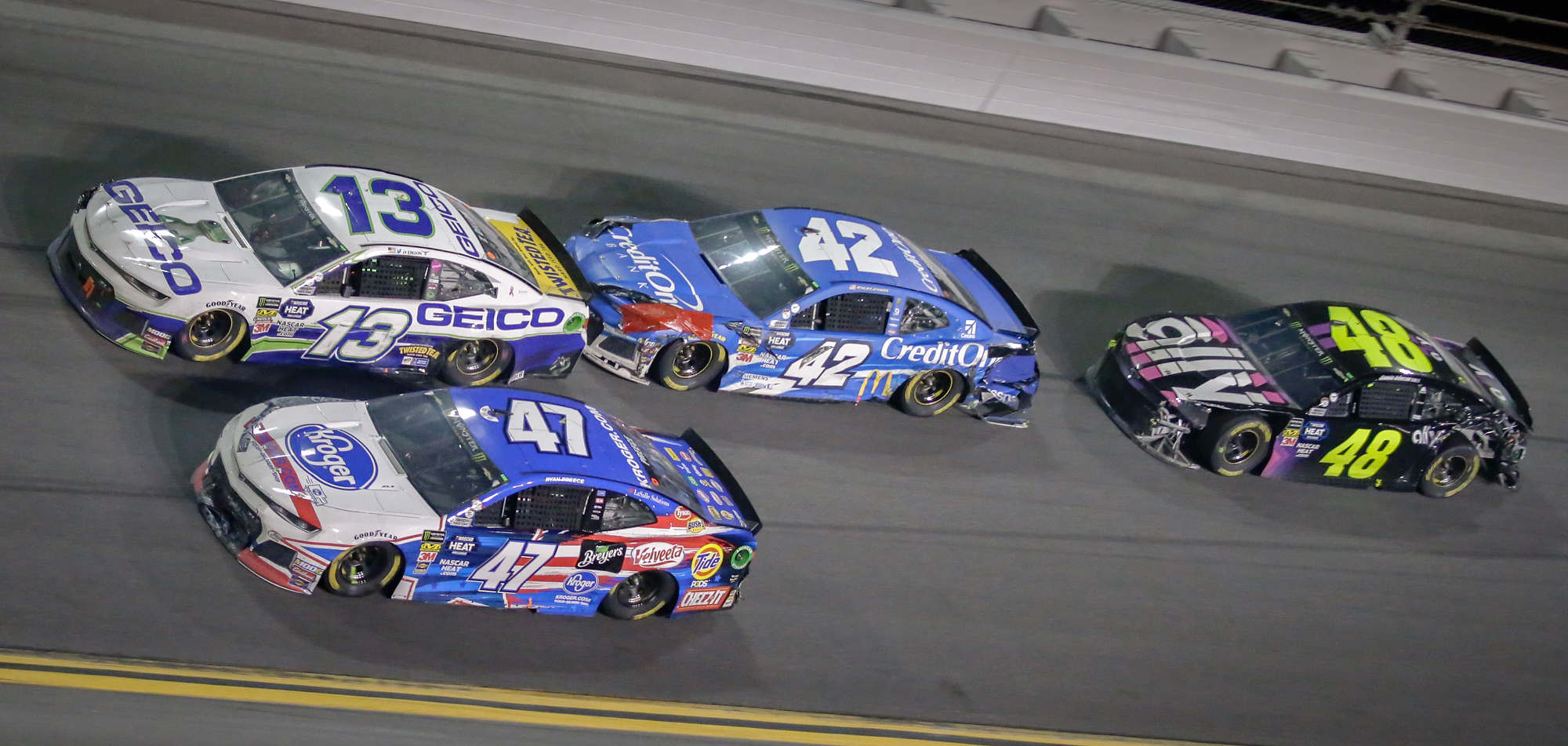Electrification on France-Family owned series
 |
| Will there ever be a day when NASCAR goes hybrid or full electric? |
As race cars continue to evolve, automakers want those cars to resemble and even show off what they sell — see this year’s NASCAR Ford Mustang as a prime example – writes Greg Engle and Mike Pryson of AutoWeek.
So it could be only a matter of time before the EVs and hybrids fighting for floor space at your local car dealer are soon racing in NASCAR and IMSA, right?
NASCAR’s history says it’s going to tread slowly. Consider: The sanctioning body ditched carburetors and went to electronic fuel injection just six years ago, starting with the 2012 Daytona 500, a full 22 years after automakers sold the last carbureted vehicles to the public.
In 1997, Toyota put its first hybrid, the Prius, on the market. Using the carburetor timeline, there should be a hybrid stocker this year.
After experimenting with a Kinetic Energy Recovery System beginning in 2008, F1 began using a hybrid setup in 2014. F1 engines use Motor Generator Units, or MGUs. The MGU-H recovers energy from the exhaust, and the MGU-K recovers it from braking. These not only add power but increase fuel efficiency by 35 percent. With the hybrid system, F1 power units deliver 750 hp when combined with a 1.6-liter gas engine.
Since some reports say EV and hybrid sales will grow to 125 million by 2030, automakers (OEMs) involved in NASCAR or IMSA could follow F1’s lead and push the sanctioning bodies in that direction.
“There’s definitely some potential for hybrid in the sport," said Mark Rushbrook, Ford Performance Motorsports’ global director, during a news conference with representatives from all three NASCAR OEMs at the end of the 2018 NASCAR season. “Not necessarily at a track like Daytona, where you’re wide-open throttle for the entire time. The hybrid just doesn’t work — it doesn’t make any sense for that. But certainly for short tracks and road courses, there may be some potential there in the future."
NASCAR’s OEM council, a collaboration between the sanctioning body and the OEMs, meets on a regular basis to work toward improving the sport, especially the on-track product. Since OEMs want it to reflect what they sell, increasingly that could mean hybrids and EVs.
“The short answer is yes," said Ed Laukes, group vice president, Toyota Division Marketing Toyota Motor North America. “I would never rule it out. The long answer is, we don’t know when."
Bringing hybrids to NASCAR would definitely take some planning, according to Jim Campbell, GM’s Performance Vehicles and Motorsports vice president.
“We want to beat each other on the track and in the showroom," Campbell said. “NASCAR brings (the OEMs) together to talk about what could be — because we have to think forward. You have to advance-plan. We’re a long lead business, an automobile business; when it comes to racing, it’s long lead as well. You’ve got to make decisions well in advance of (implementation)."
So, if the OEMs are on board, what about NASCAR?
“Is electrification in the future potentially?" said NASCAR president Steve Phelps. “Yeah, it is. Can I see a time in the future that we will have that? I do. When we get there, how we get there, what it looks like–there’s a lot of work to do between now and then. But I can assure you we are looking at it right now."
“There’s a lot of work being done in that area behind the scenes," Atherton told Autoweek about his league’s approach at a recent promotional stop in Detroit. “We take our cues from our manufacturer partners, and there’s a growing level of interest, but there’s no specific timeline yet for when that will occur. I think it’s not a question of if, it’s when.
“For now, we are aligned with the global regulations for prototype and GT racing. We’re in sync with FIA and ACO. If you look to the next generation of prototype, it would be easy to argue that that should incorporate some degree of hybridization or electrification. The opportunity to go full electric,
I don’t see that happening anytime soon with the type of racing we do–24-hour endurance racing, 12-hour endurance racing–but hybridization and electrification of some description, for sure."
Of course, the late Don Panoz, widely considered a visionary, believed the technology will soon catch up and allow a race car to compete in an endurance race with battery changes, much like teams do fuel stops today.
“It will ultimately happen," Atherton said. “There will be a step or two between where we are today to get to that ultimate destination. We’ll be ready."
But Formula E is the first to try to make it as an all-electric racing platform. This year’s move to 45-minute-plus-one-lap races on one battery charge is proof of a quickly evolving technology.
“Formula E is no doubt successful," Atherton said. “It’s a unique format, but keep in mind that IMSA is much more than just the WeatherTech championship or the Michelin Pilot Challenge.
“We have other stand-alone categories, and that’s where I think you’ll see IMSA embrace electrification. We have the opportunity to one day introduce a new motorsports platform within the IMSA family that would be part of our big weekends that could very well feature an all-electric solution." Greg Engle and Mike Pryson of AutoWeek
